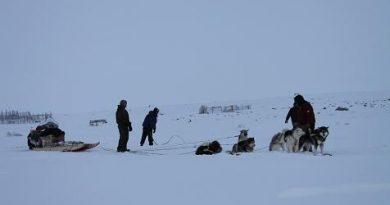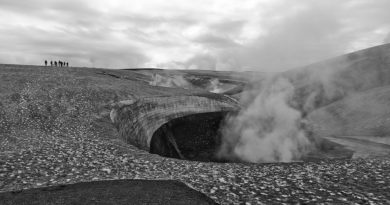Reclaiming Mother Tongue
Weather: -18c and sunny skies
IQALUIT, NUNAVUT – Today’s day three of the Nunavut Langauge Summit.
And the longer I’m here, the more I realize how complex the language issue is here in Nunavut.
In particular, how it relates to residential schools.
The residential school system was promoted by the Canadian government as a way to assimilate ‘Indian’ children and teach them to assimilate into so-called ‘white’ society.
In the majority of cases, children were taken away forceable from their families and sent far away from their communities to the church-run boarding schools.
Now while some Inuit say they had good experiences at certain residential schools, the vast majority of children who attended them were abused. Many were also brutally punished for even speaking Inuktitut.
They were literally forced to lose their language.
Here at the conference, I’m hearing over and over again how this experience for so many Nunavummiut changed their emotional relationship to their language. Many never got it back after they returned to their northern communities.
They in turn were never able to teach Inuktitut to their children. And so the cycle continues.
I spoke to one woman in her early 50s who said she was finding the conference useful as a language expert but that personally, she was finding it very difficult.
She had been taken away to residential school and by the time she left, she spoke only English. However, as an adult she started studying Inuktitut on her own. And while admittedly not perfect, she’s now functionally fluent and is teaching Inuktitut to her children. But she admits not everyone has the education or financial resources to have done what she’s doing.
“It’s hard to hear over and over every day at this conference how we’ve got to speak more Inuktutit,” she said. “I feel like my generation is constantly being blamed.
“It hurts.”


